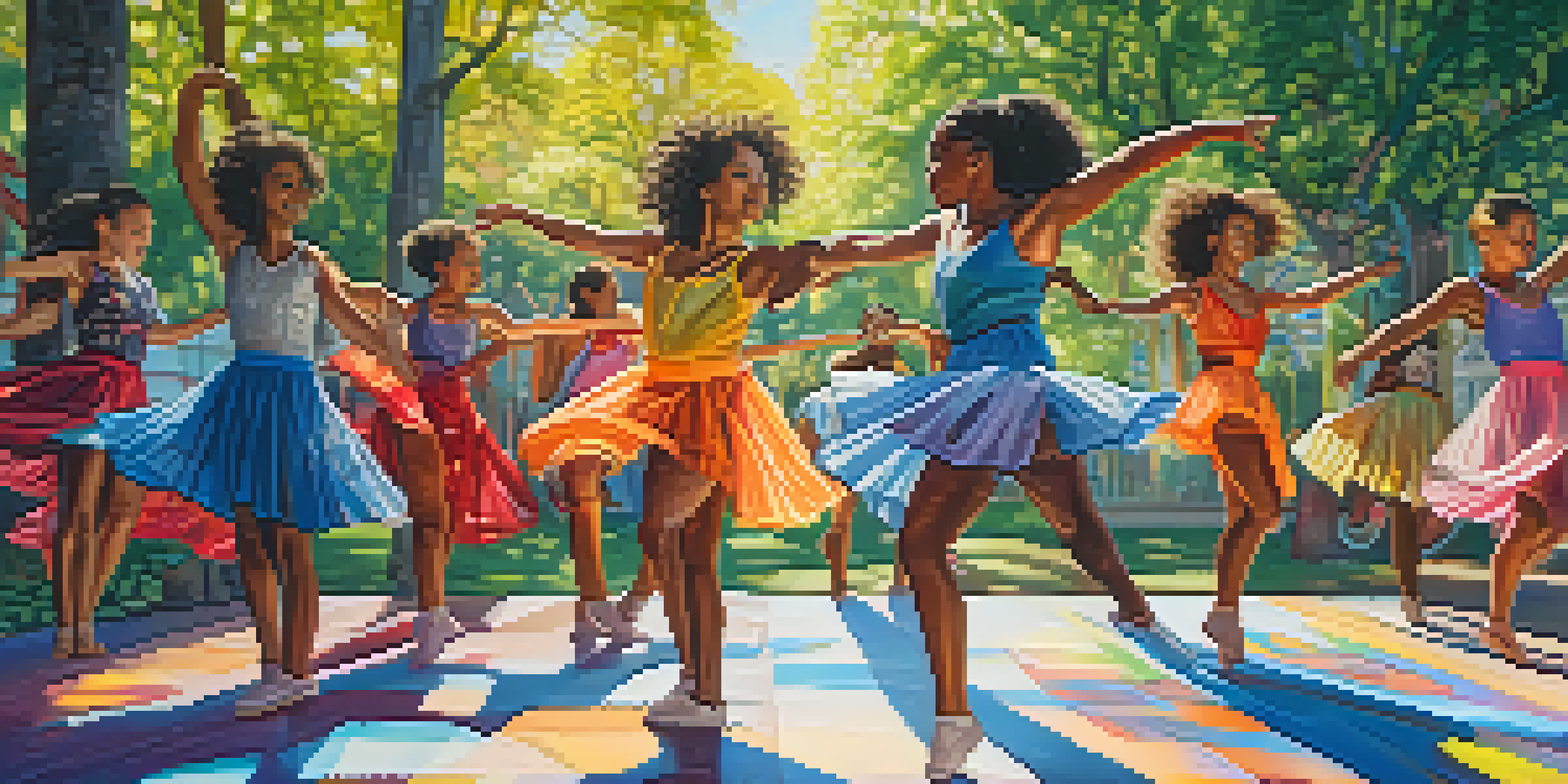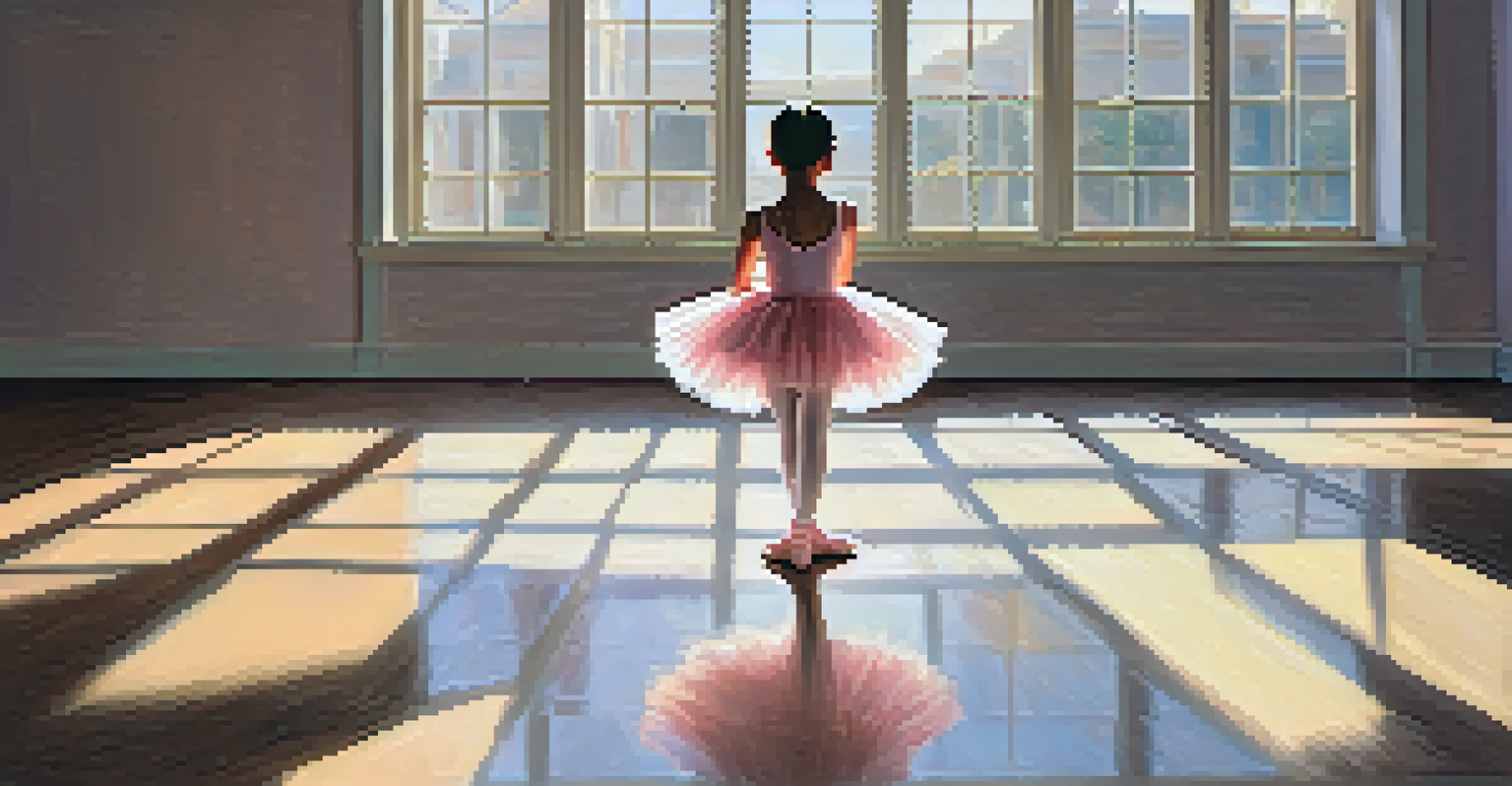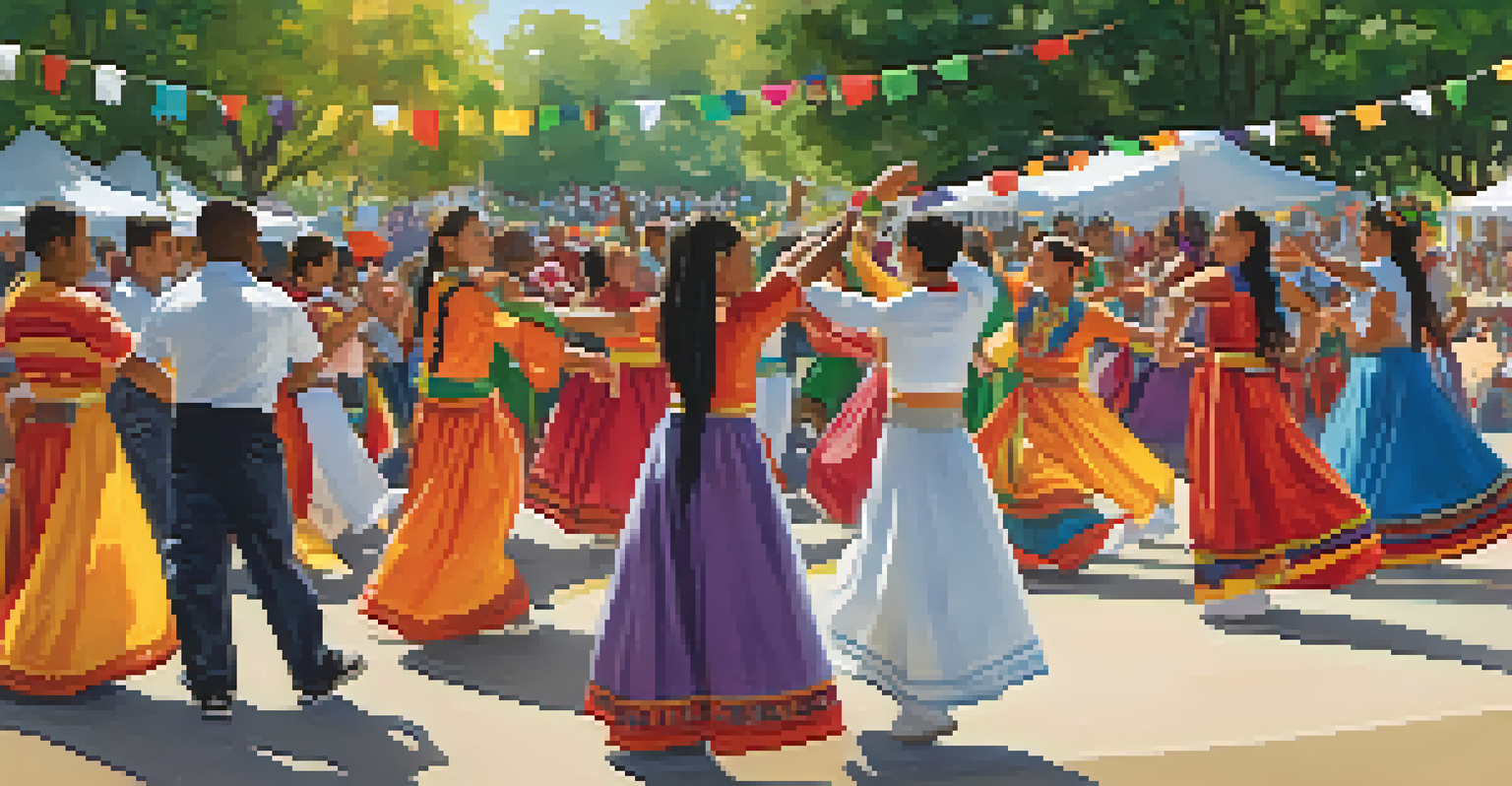Exploring Dance as a Vehicle for Youth Empowerment

Dance as a Form of Self-Expression for Youth
Dance offers young people a unique outlet to express their feelings and thoughts. It allows them to convey emotions that might be difficult to articulate verbally. Through movement, they can share their stories and connect with others who may feel the same way.
Dance is the hidden language of the soul.
This artistic expression fosters a sense of identity and belonging among youth. As they learn to communicate their experiences through dance, they build confidence in their individuality. This newfound self-awareness can have a profound impact on their overall well-being.
Moreover, dance can serve as a powerful tool for breaking down barriers. When youth participate in dance, they often find common ground with peers from diverse backgrounds. This shared experience promotes inclusivity and mutual respect, enriching their social interactions.
Building Confidence Through Dance Classes
Participating in dance classes helps youth build essential life skills, such as discipline and perseverance. Each lesson presents challenges that require dedication and practice to master. Overcoming these hurdles boosts their self-esteem and fosters a growth mindset.

As they progress in their dance skills, young dancers often experience a sense of achievement. Whether it's nailing a complicated routine or performing in front of an audience, these moments of triumph reinforce their belief in their abilities. This confidence can spill over into other areas of their lives, such as academics and personal relationships.
Dance Fosters Self-Expression
Dance provides youth with a unique outlet to express their emotions and connect with others.
Furthermore, dancing in a supportive environment encourages risk-taking. Youth learn that it's okay to stumble and make mistakes, as these moments are part of the learning process. This acceptance of imperfection cultivates resilience, a crucial trait for navigating life's challenges.
Fostering Community Through Dance Programs
Dance programs often create a strong sense of community among participants. They provide a space where youth can connect, collaborate, and support one another. This camaraderie fosters friendships that can last a lifetime, creating a network of support.
The dance is a poem of which each movement is a word.
Moreover, these programs often involve group performances, which reinforce teamwork and cooperation. Working together towards a common goal teaches youth the importance of collaboration and communication. They learn to value each other's contributions, enhancing their social skills.
Through dance, youth also engage with their local communities. Many dance programs participate in community events, showcasing their talent and bringing people together. This involvement helps youth develop a sense of pride in their community and encourages civic engagement.
Cultural Awareness and Appreciation Through Dance
Dance is a reflection of culture, and through it, youth can explore diverse traditions. Learning different dance styles exposes them to various cultural backgrounds, fostering an appreciation for diversity. This exposure can broaden their perspectives on the world.
By participating in cultural dance forms, youth gain insight into the history and significance behind the movements. This knowledge not only enriches their dance experience but also cultivates respect for different cultures. It encourages them to celebrate diversity rather than fear or misunderstand it.
Building Confidence Through Dance
Participating in dance classes helps youth develop essential life skills and boosts their self-esteem.
Furthermore, cultural dance can instill a sense of pride in one's heritage. Youth who engage with their cultural traditions through dance often feel a deeper connection to their roots. This connection can enhance their self-identity and reinforce the importance of cultural preservation.
Dance as a Therapeutic Outlet for Emotional Expression
Dance can serve as a therapeutic outlet for youth dealing with emotional challenges. It provides a safe space for them to release pent-up feelings, whether it's joy, sadness, or frustration. This physical expression can be incredibly cathartic and healing.
Incorporating movement into therapy can help youth develop emotional intelligence. Through dance, they can learn to recognize and articulate their emotions more effectively. This skill is crucial for navigating relationships and managing stress in their lives.
Moreover, dance therapy can be particularly beneficial for those who have experienced trauma. It allows them to process their experiences in a non-verbal way, promoting healing and recovery. This holistic approach emphasizes the mind-body connection, supporting overall mental health.
Empowering Leadership Skills Through Dance
Dance programs often provide youth with opportunities to take on leadership roles. Whether it's choreographing a routine or mentoring younger dancers, these experiences help cultivate leadership skills. Youth learn to guide and inspire others, boosting their confidence and sense of responsibility.
Moreover, by participating in group projects, they develop essential skills like communication and conflict resolution. Learning to navigate group dynamics prepares them for future leadership positions in various settings. These skills are invaluable in both personal and professional contexts.
Community and Cultural Awareness
Dance programs create a sense of community while fostering appreciation for diverse cultural traditions.
As they embrace these leadership opportunities, youth also inspire their peers. Their enthusiasm and dedication can motivate others to engage and participate. This ripple effect creates a culture of empowerment where everyone feels valued and encouraged to step up.
The Lasting Impact of Dance on Youth Development
The benefits of dance extend far beyond the studio; they can have a lasting impact on youth development. The skills learned through dance—confidence, teamwork, and emotional intelligence—are essential for personal growth. These attributes can shape their futures in significant ways.
As youth transition into adulthood, the positive effects of their dance experiences often remain with them. They carry the lessons learned into their careers, relationships, and communities. This foundation of empowerment can lead to a more fulfilled and engaged life.

Ultimately, dance empowers youth to embrace their individuality while fostering a sense of community. It equips them with the tools needed to navigate life's challenges confidently. By investing in dance programs, we invest in the future potential of our youth, helping them become empowered leaders and change-makers.